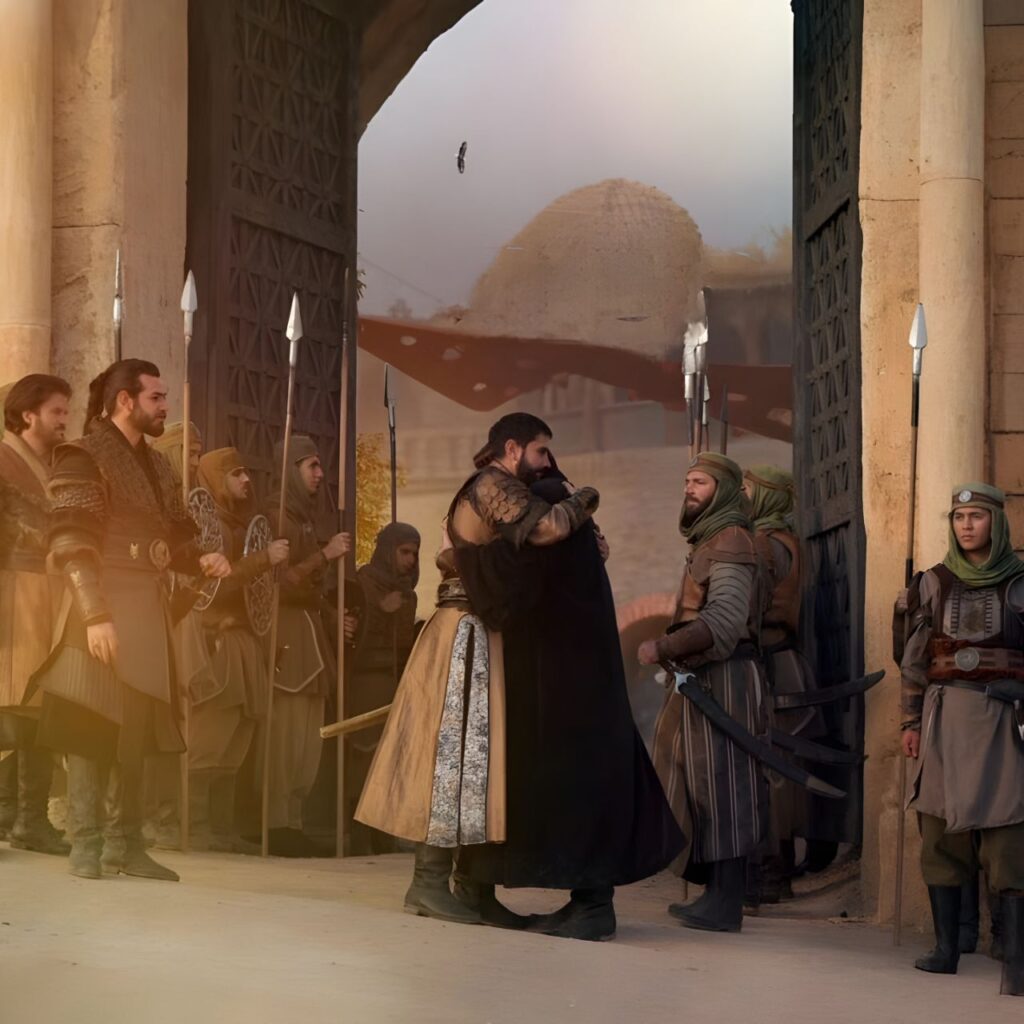Who was Qazi Fazil??

Who Was Qazi Fazil? Grand Wazir of Salahuddin Ayyubi
Qazi Fazil, a prominent figure in the court of Salahuddin Ayyubi, also known as Saladin, played a crucial role in the administration and governance of the Ayyubid dynasty, particularly during the period of the Crusades in the late 12th century. His title, Grand Wazir, denoted a position of immense power and responsibility, serving as a trusted advisor and a key administrator for one of the most famous Muslim rulers in history. Salahuddin Ayyubi, a Kurdish general who rose to prominence for his military leadership and strategic brilliance, relied heavily on his advisers and administrators to navigate the complex political and military challenges of his time, and Qazi Fazil was among those whose influence was vital.

The Context of the Ayyubid Dynasty and the Crusades
To understand the significance of Qazi Fazil, it is essential to consider the broader historical context in which he operated. The late 12th century was a time of tumultuous conflict between Christian and Muslim forces, particularly following the First Crusade (1096–1099), which resulted in the capture of Jerusalem by the Crusaders. By the time Salahuddin Ayyubi came to power, the Crusader States in the Levant were firmly entrenched in the region, and retaking Jerusalem was a central goal for many Muslims.
Salahuddin’s rise to power began in 1169 when he was appointed as the vizier of Egypt. Over the next few years, he consolidated power across the Levant, unifying various Muslim territories under his leadership. By 1187, Salahuddin achieved one of his greatest triumphs when he successfully retook Jerusalem from the Crusaders after nearly 90 years of Christian rule.
The Crusades and the political intrigue of the era were key challenges that required careful diplomatic maneuvering, religious sensitivity, and political wisdom. Qazi Fazil’s role as the Grand Wazir of Salahuddin was crucial in managing the day-to-day administration of the Ayyubid Empire and ensuring that Salahuddin’s military campaigns, particularly during the Crusades, could proceed without being hindered by internal strife or disorganization.
Qazi Fazil’s Early Life and Rise to Power
Very little is known about the early life of Qazi Fazil, and most historical accounts of his life come from secondary sources. He was born into a family of scholars and bureaucrats. His early education was in law and governance, where he developed the knowledge and skills that would eventually lead to his significant role in the Ayyubid court. He became known for his sharp intellect, ability to navigate the complex political environment of the time, and his deep understanding of Islamic jurisprudence and administration.
Qazi Fazil’s rise to power began through his involvement in the judicial and administrative systems of the Ayyubid dynasty. His reputation as a fair and just judge caught the attention of Salahuddin Ayyubi, who, seeking capable and loyal individuals to help him govern his empire, appointed him as a key member of his administrative staff. Over time, Qazi Fazil’s role evolved, and he was elevated to the position of Grand Wazir, effectively becoming Salahuddin’s chief minister.
The role of a Wazir, or vizier, was one of great responsibility. As the head of the administrative system, the Wazir was responsible for overseeing the implementation of policies, managing financial affairs, and advising the ruler on matters of state. In addition to these administrative duties, the Wazir was also tasked with managing diplomatic relations with other powers, both Muslim and Christian, and ensuring that the internal affairs of the empire ran smoothly. For Qazi Fazil, this meant not only being a skilled bureaucrat but also a diplomat, strategist, and, to some extent, a mediator between the various factions within the Ayyubid state.
Qazi Fazil’s Role in Salahuddin’s Government
As Grand Wazir, Qazi Fazil’s influence in the Ayyubid court was immense. His role extended beyond mere administrative functions; he was a close advisor to Salahuddin on matters of both governance and military strategy. One of the most significant aspects of Qazi Fazil’s role was his involvement in overseeing the financial and judicial systems of the empire. Under his stewardship, the Ayyubid state was able to maintain a functioning bureaucracy that could support the military campaigns necessary to reclaim and defend key territories from the Crusaders.
Qazi Fazil’s deep knowledge of Islamic law and governance made him an invaluable asset in a time when religious and political issues were intertwined. He ensured that the governance of the Ayyubid Empire was in line with Islamic principles, making sure that both military campaigns and domestic policies adhered to the values of justice, fairness, and religious duty.
During Salahuddin’s military campaigns, especially during the decisive Battle of Hattin in 1187, Qazi Fazil’s role extended beyond the administrative to the strategic. He worked behind the scenes to coordinate supplies, manage the empire’s resources, and ensure that Salahuddin’s army was properly funded and equipped for the challenges they faced in battle.
Diplomacy and Relationship with the Crusaders
Qazi Fazil’s role in diplomacy was also crucial during the Crusades. As the Crusader States continued to expand their influence in the region, Salahuddin’s government had to contend with both direct military threats and the complex diplomatic relationships with European powers. Qazi Fazil played a part in facilitating negotiations between Salahuddin and various Crusader leaders. For example, after the retaking of Jerusalem, Salahuddin entered into several negotiations with the Crusader leaders for the safe passage of Christian pilgrims to the city, demonstrating his ability to balance military goals with diplomatic concerns.
Despite the ongoing military conflict, Qazi Fazil understood the importance of diplomacy and religious tolerance. Under his guidance, Salahuddin’s rule was characterized by a degree of pragmatism that allowed him to maintain peace with certain Christian factions while continuing to defend Muslim territories. This diplomatic acumen helped stabilize the region during a time of intense conflict and ensured that the Ayyubid Empire could maintain its hold on Jerusalem and other key territories.
Qazi Fazil’s Legacy
The legacy of Qazi Fazil is somewhat overshadowed by the more well-known figures of the Crusades, such as Salahuddin himself. However, his role as a key advisor and administrator in one of the most pivotal periods in medieval history should not be underestimated. As Grand Wazir, he helped Salahuddin Ayyubi build a stable and efficient state that could withstand the challenges posed by the Crusaders and other external forces. His contributions to the administration, diplomacy, and legal system of the Ayyubid Empire were indispensable in ensuring the long-term success of Salahuddin’s rule.
Qazi Fazil’s influence continued to be felt long after his time, as his policies and administrative systems laid the foundation for future rulers in the region. His legacy as a wise and capable statesman remains an important part of the history of the Ayyubid dynasty and the broader history of the Crusades.
Conclusion
Qazi Fazil was one of the unsung heroes of the Ayyubid dynasty, a brilliant and capable statesman whose administrative skills and diplomatic acumen helped shape the success of Salahuddin Ayyubi’s reign. While his name may not be as well known as that of Salahuddin, his role as Grand Wazir was instrumental in maintaining the stability and strength of the Ayyubid Empire during a time of intense conflict. Through his leadership, the Ayyubid state was able to navigate the challenges of the Crusades, and his legacy continues to be remembered as a testament to the importance of wise and just governance in times of war and peace.



